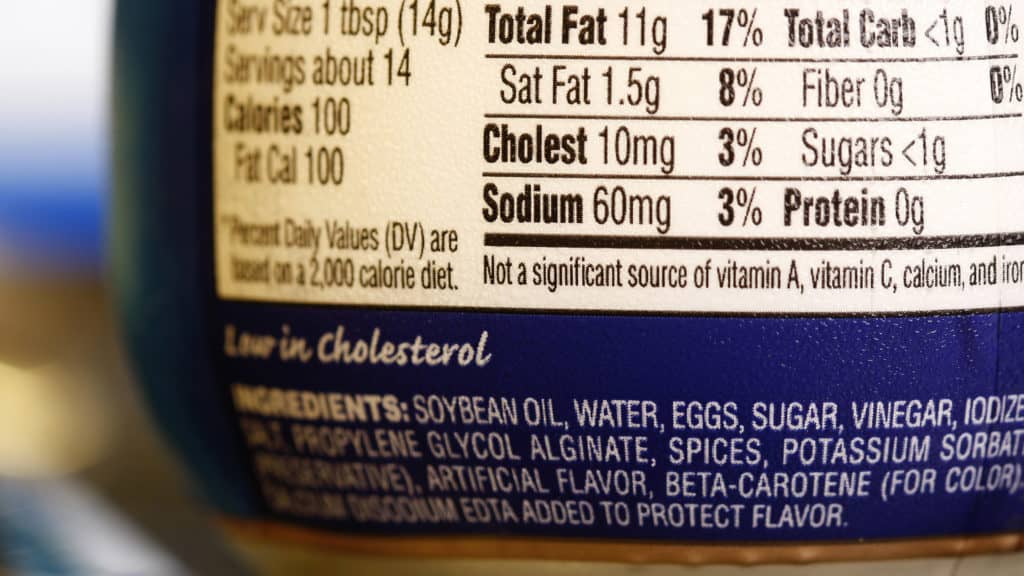Advancement of Global Food Composition Databases
This session was sponsored by ILSI North America, the ILSI Research Foundation, and ILSI Southeast Asia Region.
The importance of comprehensive food composition databases is more critical than ever in helping to address global food security. This session presented an overview of food composition databases around the world and included case studies on new developments in strengthening these food composition databases to improve the quality of dietary assessment surveys.
ASEANFOODS is the Association of Southeast Asian Networks of Food Data systems. The goal and objectives of the ASEANFOODS, which are in line with those of FAO’s INFOODS, are to strengthen the development of national and regional food composition data with high quality, adequate quantity and accessibility to the users in ASEAN and other regions. This session provided an update on new developments in ASEANFOODS.
“A Partnership for Public Health: USDA Branded Food Products Database” is a public-private partnership between the US Department of Agriculture (USDA), ILSI North America, GS1 US, and Label Insight whose goal is to enhance public health and the sharing of open data by enhancing the USDA National Nutrient Database with nutrient composition of branded food and private label data provided by the food industry. The publically available data will enhance the capabilities of international databases that use the USDA National Nutrient Database. Information on how countries can submit food composition data to the USDA Branded Food Products Database was covered.

Welcome and Introduction to the Session
Alison Kretser, MS, RDN (Session Chair)
ILSI North America, USA
Food Composition Databases Across the Globe: An Overview
Morven McLean, PhD
ILSI Research Foundation, USA
New Developments in the Association of Southeast Asian Network’s ASEANFOODS Food Composition Database
E Siong Tee, PhD
Taylors University, Malaysia
What’s New: The USDA Branded Food Products Database
Pamela Starke-Reed, PhD
US Department of Agriculture, USA
Welcome and Introduction to the Session
Alison Kretser, MS, RDN (Session Chair)
ILSI North America
USA
coming soon
Food Composition Databases Across the Globe: An Overview
Morven McLean, PhD
ILSI Research Foundation
USA
In 2017, the ILSI Research Foundation launched the World Nutrient Databases for Dietary Studies (WNDDS), a curated clearinghouse of information about food composition databases and tables. Designed with researchers, dietitians, students, government officials, and database managers in mind, WNDDS serves to aide users in their initial assessment of the scope and depth of nutritional composition data available for certain countries and regions. It is displayed as an interactive map that enables users to explore, analyze and filter 90 FCDBs from 92 countries and regions. WNDDS is meant to be a starting platform for users to learn about available food composition databases and tables to determine which may suit their needs, and it provides hyperlinks to direct the user to the source databases and tables (when these are available). An overview of WNDDS demonstrating its functionality will be provided.
The ILSI Research Foundation also maintains the ILSI Crop Composition Database (ILSI-CCDB), an open-access source of comprehensive nutritional composition data for eight conventionally bred crops: canola, cotton, field corn, potato, rice, sorghum, soybean, and sweet corn. Data in the CCDB are derived from numerous samples of hybrids and/or varieties cultivated in controlled field trials using standard commercial cultivation practices at various locations throughout the world. Representative plant samples are obtained from field-grown crops with known production locations and dates. The analytical methods used to generate the composition data must be indicated, validated, and use certified or historically verified standards. Users can query the database to generate mean levels and ranges of nutritional components in various crop species. Environmental factors such as soil type and temperature can impact the levels of important nutrients in plants, and the moisture content can vary based on field conditions at harvest and when samples are handled. The database includes features that allow the user to retrieve a subset of data for samples produced in a specific year or location, and the analyte search filter can be applied to retrieve a pre-determined subset of data. Version 6 of the ILSI-CCDB was released in October 2016, and Version 7, which will include apple for the first time, is targeted for release before the end of 2017.
One of the strengths of the ILSI-CCDB is the completeness and quality of the datasets for each of the subject crops. However, the analytical rigor required for data submitted to the ILSI-CCDB means that sample testing is expensive, and so it is not surprising that most data has been provided (at no charge) by the private sector, and for a very limited range of crops. The ILSI Research Foundation is committed to including data for other crop species, particularly of important staple foods. For such data to become available, public sector breeding programs, as well as breeding programs run by small and medium private firms, must be able to submit data, but it is also essential to ensure that data for new crops are verifiable and robust. Resolving how to balance these imperatives remains a significant challenge.
Keywords: food composition, crop composition, open data
New Developments in the Association of Southeast Asian Network’s ASEANFOODS Food Composition Database
E Siong Tee, PhD
Taylors University
Malaysia
The Association of Southeast Asian Network of Food Data systems (ASEANFOODS) was established in 1986 consisting of 10 member countries, namely Brunei Darussalam, Cambodia, Indonesia, Laos, Malaysia, Philippines, Singapore, Thailand, and Vietnam. To coordinate the ASEANFOODS activities, the Institute of Nutrition, Mahidol University (INMU) was chosen as the Regional Centre in 1986 and INFOODS Regional Database Centre in 1991. The goal and objectives are to strengthening the development of national and regional food composition data (FCD) with high quality, adequate quantity and accessibility to the users. The first ASEAN FCTs was published in 2000 and was available in ASEANFOODS website. A number of proficiency testing schemes for laboratories were organised and few reference materials for food analysis were developed. During 2015- 2016, ASEANFOODS collaborated with and supported by International Life Sciences Institute South East Asia (ILSI-SEA) Region in organising two workshops in Thailand. The specific objectives of the first workshop, from 17-18 December 2015, were to develop a quality evaluation system (draft guideline) for assessing the quality of published national FCTs in ASEAN countries and to develop action plan for succeeding workshop and future activities. The specific objectives of the second workshop, 30-31 March 2016, were 1) to review the proposed plan/strategies for updating of ASEAN FCTs/FCDBs and organising FoodComp-ASEAN course, 2) to discuss the feasibility of incorporating nutrient data of pre-packaged foods (branded food products) into national FCDBs. The latter activity has commenced in Thailand, to be followed by Malaysia and Philippines. At the national level, most ASEAN countries have been actively working on generating new data. Recent activities are as follows: Malaysia continued with its new phase of compilation and documentation of the laboratory analyses of nutrients by participating institutions through a web-based system for data generators, data compilers and data users. This online FCDB publishes partial releases of the Malaysian FCD websites since 2015. Facilitated by ILSISEAR, a project to analyse the sugar content of commonly consumed foods and beverages is being planned. Philippines: Current activities are on updating FCTs and webbased PhilFCT. New food data, focusing on indigenous fruits and vegetables, are being generated, compiled, checked and evaluated until the end of the 3rd quarter of 2017. Thailand: The hard copy of the new version Thai FCT was published in September 2015. The on-line Thai FCDB is available since April 2016 at the INMU website. Food composition data for new food items and missing data are being developed. Vietnam: Activity on updating the Vietnam FCDB is at the final preparation and is expected to be published by 2017. A strategic plan for updating the ASEAN FCDB has been developed for Page 2 of 2 possible implementation in 2018 when there is sufficient progress of FCDB in the main member countries. The main activity of the ASEANFOODS Regional Centre in 2017 will be to strengthen the competence of young staffs in ASEANFOODS member countries by collaborating with the area experts in organising the FoodComp–ASEAN 2017 in Thailand.
What’s New: The USDA Branded Food Products Database
Pamela Starke-Reed, PhD
US Department of Agriculture
USA
Many current and important public health challenges are linked to food and nutrition. The U.S. Department of Agriculture (USDA) has farm-to-fork oversight of the U.S. Food Supply, and the USDA conducts much work in the areas of nutrition and dietary guidance. Central to accomplishing this task is tracking the nutritional status of Americans, and this requires knowledge of the composition of the food system. Although the USDA has maintained food composition records since the early twentieth century, the task today is greatly complicated by the volume and fluidity of the food supply. Today there are more than 25,000 food manufacturers in the US who produce more than 20,000 new food and beverage products each year. The USDA Agricultural Research Service (ARS) maintains a program for monitoring food composition and nutrient intake of the nation; this program has two components: 1) Provide U.S. food composition data and 2) Determine food consumption and dietary patterns of Americans as part of the National Health and Nutrition Examination Survey (NHANES). For over thirty years this program has maintained the USDA National Nutrient Database.
This presentation will provide an overview of “A Partnership for Public Health: The USDA Branded Food Products Database”, a public-private partnership (PPP) between the USDA, the International Life Sciences Institute North America (ILSI North America), GS1 US, 1WorldSync, Label Insight, and the University of Maryland Joint Institute of Food Safety and Applied Nutrition (JIFSAN) whose goal is to enhance public health and to share open data by augmenting the USDA National Nutrient Database with nutrient composition and ingredient information on branded foods. The USDA Branded Food Products Database is seamlessly integrated into the existing USDA National Nutrient Database, and ensures that these data elements are publicly available to those who will utilize them, such as federal agencies, the research community, international databases, proprietary databases and end users, the food industry, and consumers. All data will be archived; historical data on food products will allow for tracking dietary trends.
The USDA Branded Food Products Database was officially launched in September 2016 with 80,000 products and now includes over 205,000 products. The growth in the Database achieves a goal of the Partners to establish the USDA Branded Food Products Database to better reflect the nation’s food supply. An update on Database metrics will be provided.
This PPP, which includes Partners with expertise in data quality and management, data collection, supply chain standards, and research knowledge, is a model for how multiple sectors can collaborate to benefit public health. Lessons learned in the development of the PPP will be shared.
Alison Kretser, MS, RDN
ILSI North America
USA
coming soon
Morven McLean, PhD
ILSI Research Foundation
USA
Morven A. McLean Ph.D. is the Executive Director of the non-profit International Life Sciences Institute (ILSI) Research Foundation, where she works with a dedicated team on multi-sectoral, interdisciplinary scientific and capacity building programs that span agriculture, nutrition and the environment.
Morven first joined the ILSI Research Foundation in in 2009 as Director of the Center for Environmental Risk Assessment, and in 2013 was additionally appointed lead for sustainable agriculture and nutrition security across the ILSI organization internationally. She has held the position of Chief of Canada’s Plant Biotechnology Office, the federal regulatory authority for the assessment and release of genetically modified plants, and was President of AGBIOS, a consultancy that works internationally with governments, non-governmental organizations, and the public and private sectors on issues of policy and regulation pertaining to genetically modified foods, crops, and forest tree species. Morven has served as a technical expert on biotechnology risk assessment, regulation and policy for many organizations, including the Food and Agriculture Organization, the World Bank, the United States Agency for International Development, the United National Environmental Program and the Secretariat to the Convention on Biological Diversity, as well as many national governments.
Morven received her B.Sc. (Agriculture) from McGill University, M.Sc. in environmental biology from the University of Guelph, and Ph.D. in molecular plant virology from the University of British Columbia. She completed her post-doctoral training with Agriculture and Agri-food Canada’s Vancouver Research Station.
E Siong Tee, PhD
Taylors University
Malaysia
E-Siong Tee PhD, is President of the Nutrition Society of Malaysia (NSM). In this capacity, he has led the implementation of various community promotion programs for over 20 years. He represents NSM in several Technical Committees in the Ministry of Health Malaysia, including the National Coordinating Committee for Food and Nutrition (NCCFN), the Technical Working Group for Nutritional Guidelines and Committees related to food regulations and Codex Alimentarius.
Dr Tee is a member of the Board of Scientific Directors of the International Life Sciences Institute (ILSI) (Southeast Asia Region) and is Coordinator for ILSI Malaysia Country Committee since 2005. He is also nutrition consultant for TES NutriHealth Strategic Consultancy.
Dr Tee was Head of the Cardiovascular, Diabetes and Nutrition Research Centre of the Institute for Medical Research (IMR) until his retirement in February 2002, after serving for 30 years. In the IMR, he initiated the Malaysian Food Composition Programme in 1980 and published several editions of the Food Composition Tables. He was among the initiators of ASEANFOODS in 1986 and still serves as an adviser of the Network.
Pamela Starke-Reed, PhD
US Department of Agriculture
USA
Dr. Starke-Reed is the Deputy Administrator for Nutrition, Food Safely and Quality Utilization of Agricultural Products at the Agricultural Research Service (ARS), USDA. Dr. Starke-Reed also serves as the Ethics Officer and Scientific Integrity Officer for ARS. She came to ARS, leaving the National Institutes of Health (NIH) where most recently she served 12 years as Deputy Director of the Division of Nutrition Research Coordination, coordinating the ongoing nutritional sciences, obesity and physical activity research at NIH. Her previous positions include 10 years with the NIH National Institute on Aging as Director of the Office of Nutrition and Program Director for the Nutrition and Metabolism and Protein Structure and Function research programs. She has also served as Biologist with the Food and Drug Administration’s Center for Food Safety and Applied Nutrition and Assistant Professor with the Department of Medicine of George Washington University (GWU) in Washington DC. Since 1991, Dr. Starke-Reed has served as Adjunct Professor with the GWU Medical Center in Washington D.C. She earned her B.S. in Biology at St Lawrence University in Canton, NY and her Ph.D. in Pathology at Hahnemann University in Philadelphia, Pennsylvania.
Dr. Starke-Reed is well known throughout the human nutrition community for her efforts at NIH to link nutritionals sciences research with research on physical activity to help better understand how the quality of diet and physical activity contribute to health and disease/obesity. As part of that effort, she was co-chair of the Subcommittee on Dietary Reference Intakes of the Interagency Committee on Human Nutrition Research (ICHNR). In February 2014 Dr. Starke-Reed was named Co-Executive Secretary for the (ICHNR) under the Chairs of Dr. Cathie Woteki (OCS and Undersecretary USDA) and Dr. Karen DeSalvo (ASH/HHS). The ICHNR is a trans-federal government committee established to improve coordination and increase the effectiveness and productivity of Federal agencies engaged in nutrition research; members include representatives from USAID, USDA, DOC, DOD, DHHS, DVA, NASA, NSF, EPA, FTC, NOAA, VA, and the White House Office of Science and Technology Policy. Dr Starke-Reed represents ARS and/or USDA on several trans-federal government committees including the Food Safety Technical Committee in CODEX Allimentarius, as well as several International committees/programs in Food Safety research . She also represents ARS in the Quality and Utilizations of Agricultural products on National and international working groups Dr Starke-Reed has published numerous papers and book chapters and currently serves on the editorial board of the Journal of Nutritional Biochemistry and as Associate Editor for Nutrition Reviews.
Click here to download a handy Twitter guide to this session during ICN.



